The challenge of sustainable construction

If one was to draw a conclusion on how seriously sustainability is being taken at government level using the number of occurrences of the word "sustainable" in policy documents, housing guidelines and speeches from Ministers, it would come across that Ireland's on a sound sustainable footing. But is there substance behind this lip service? Jonathan Jennings, Research and Development Manager with Kingspan Century investigates what real support exists for sustainable construction in Ireland.
There is no doubt that sustainability in construction has become a "buzz" word, along with eco. To many it conjures up images of the "beard and sandals brigade" professing that the end is nigh and that we must put an end to our wicked construction ways. But what does it mean to be sustainable, to be eco? Even bog standard concrete puts forward its sustainability credentials these days.
When it comes to sustainability, let's not be foolish. A burgeoning economy has needs; the tiger's appetite must be satisfied. We have to maintain levels of economic growth & employment while recognising the needs of every one. However, normally this is done without effective protection of the environment.
You could define sustainable construction, to paraphrase the accepted and at this stage clichéd definition of sustainable development, as being about meeting the needs of today, through the prudent use of natural resources, and thereby not compromising the ability of our children to meet their own needs tomorrow.
It's the end of 2005 and currently there are no incentives available to a private citizen of this State, who wishes to build their own home to an energy standard better than that of the Building Regulations. We await the detail of the renewable energy heating grants for the domestic market with great interest, with an announcement expected early in the new year.
Cast your mind back to November 1955. Renewable technology is unheard of, houses are built with no consideration to heating systems, insulation & ventilation, and there's only one way to build: unsustainably. Not a lot has changed in the last 50 years, except the fact that we are building houses at a rate of knots; 70,000 knots per year. About 75% of these are built to an unacceptable standard and we are all contributing to global warming. The most significant greenhouse gas contributing to global warming is CO2, primarily from energy use, and over 40% of such emissions derive from energy use in buildings. This is largely through our acceptance of poorly built houses, using antiquated building technology, with only self-regulation for guidance. During the construction boom it has been a sellers market, with a culture of people frantically looking to buy, with little attention to the standard of what they're buying.
You could argue that it might as well be 1955 as little or nothing has changed, but has it? We do have building standards, or the worst possible standards permitted by law.
Given our commitments under the Kyoto Protocol, The fact that Ireland is currently 29% above the 1990 levels, one of the top 3 worst performers in Europe, with substantial penalties to the tune of e600 million in the pipe line surely it makes sense to promote and encourage low energy demand buildings & renewable technology, especially when you consider that climate change is a reality. That three of hottest years since records began have occoured in the last 8 years is testament to this fact. (see graph).
Currently the only program that looks to promote best practice is the "House of Tomorrow" program operated by SEI. Unfortunately however this only applies to developers who wish to build a scheme of 20 - 100 houses.
What are we doing at the moment in the area of CO2 reduction in buildings? Existing programs for buildings offered by SEI include projects in the area of low income housing, consumer information, the Energy Performance of Buildings Directive, the public sector program, and the previously mentioned House of Tomorrow RD&D.
SEI's own stated objective in this area is to "Accelerate the development and uptake of workable, least-cost policy and market solutions in the Irish building sector leading to improved energy conservation and performance.", yet no incentives have previously been made available to the one off housing market, in a period when house building has been so prolific.
Given the size of the one off private development market-potentially 15,000 to 20,000 houses per year--there is still huge potential for a large uptake in low energy demand buildings and in the use of renewable technology. The interest is out there in the market, however costs are always the prohibitive factor.

"Even bog standard Concrete puts forward its sustainability credentials these days"
The fact is that there is no grant aid for any one building a well-insulated, airtight, well-glazed, low energy house. So how do we reduce CO2 domestically? There are some key principles in achieving this that must be guided by government policies and guidance. These include energy management, avoiding fabric losses (insulation, air tightness), heat recovery ventilation, A-rated appliances, and renewable energy technology.
This lack of state action has not the case else where, for example in the UK, where for the last three years under the Clear Skies programme, funded by DTI and managed by BRE, householders have been able to obtain grants of between £400 to £5,000 for renewable technology such as solar thermal (hot water), solar air (heat recovery ventilation), solar PV (electricity), wind turbines (electricity), micro/small scale hydro turbines (electricity), ground source heat pumps (heating), boilers & room heaters/stoves fired with wood pellets (heating). Clear Skies offers free advice & feasibility studies, registers products and installers, and administers all of this through a £10 million fund.
Furthermore, in contrast to the ESB who have no interest in small-scale domestic electricity generation, Northern Ireland Electricity run a number of complementary programs such as Clear Skies + Program where further funding of £500 on top of the Clear Skies grant is offered. NIE do this in recognition that small scale domestic electricity generation and hot water generation reduces demand on their network, and on the demand to build new power generation stations.
Given the proximity of such incentives in Northern Ireland and the UK, and the development of much more comprehensive programs elsewhere in Europe, it is time that we also became active in creating incentives here for low energy demand housing & renewable technology for private one off developments.
In order to stimulate such a market here there are a number of key actions that could be taken by Government:
Abolish or reduce VAT on renewable energy technology (0% in Germany, 5 % in UK, 21% Ireland)
Grant aid new build that demonstrates a Building Energy Rating (BER) performance greater than 40 % of the current building regulations (with a potential saving of between 1.5 - 2 Tonnes of CO2 per annum)
Further liberalisation of electricity connections. Currently the ESB will not entertain reverse metering, an essential element in the generation of small-scale renewable electricity
Give clear directions to planners to support planning applications for small scale wind turbines and solar panels for both hot water and electricity
Set up a separate Government Agency perhaps under SEI to deal with this area, which would be given the remit to drive a public awareness campaign on available renewable technology and available grants
Develop interest free loans from a government agency for such technology
Develop accreditation and certification for renewable energy technology and its installers
A government agency should provide feasibility studies on individual one off projects for free or for a nominal fee
Following the establishment of such an agency government needs to release funds of circa e10,000,000 for grant aid plus associated administrative costs
When all factors are considered, Building Regulations are the worst possible standard permitted by law. In terms of energy efficiency, the vast majority of housing has still been built to old standards over the last few years, with no incentive to build any better then regulations. As Kyoto Fines approach, it is imperative to take action and offer real support to people building their own house in reducing CO2.

Much of current housing output has difficulties in acheiving compliance even with the minimum permittable standards
What I am proposing, can I believe be done at a very small cost to the taxpayer and provide a net benefit to the State in the long term. Such initiatives as outlined above would ensure maintenance of high and stable levels of economic growth & employment in the area of renewable energy technology and low energy demand buildings. It would show leadership on the part of the current Government parties in the area of social progress which recognises the needs of every one with respect to the environment, while also promoting protection of the environment, prudent use of natural resources, and limiting our exposure to large fines imposed through Kyoto, through the reduction of CO2 output.
Here is hoping that the EPBD raises awareness of CO2 and energy awareness. There's a general election around the corner and its time to take low energy buildings and renewables to the top of the agenda, or else we will all be paying the penalties in more ways than one.
- Articles
- Obstacles to Sustainable Building
- The Challenge of Sustainable Construction
- Kingspan
- sustainable construction
- jonathan jennings
- century homes
- concrete
- policy
- kyoto
Related items
-
 Ecocem executive John Reddy becomes the first Irish President of the Institute of Concrete Technology
Ecocem executive John Reddy becomes the first Irish President of the Institute of Concrete Technology -
Ireland joins whole life carbon data initiative
-
WorldGBC launches green building policy principles for governments
-
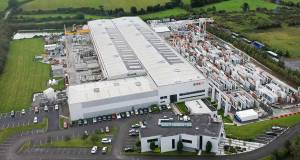 Techrete aims for net zero carbon by 2030
Techrete aims for net zero carbon by 2030 -
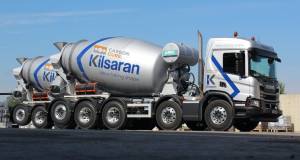 Kilsaran launch lower carbon cement with CarbonCure
Kilsaran launch lower carbon cement with CarbonCure -
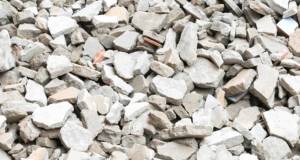 New research gives boost to recycled concrete
New research gives boost to recycled concrete -
 The PH+ guide to greener concrete - reducing the climate impact of cement and concrete in buildings
The PH+ guide to greener concrete - reducing the climate impact of cement and concrete in buildings -
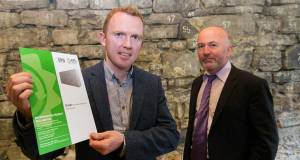 Quinn get first Irish EPD for precast concrete
Quinn get first Irish EPD for precast concrete -
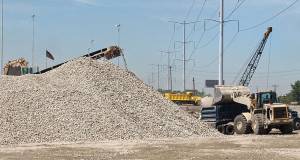 Green concrete breakthrough with waste wood & recycled concrete
Green concrete breakthrough with waste wood & recycled concrete -
 Kingspan up for green manufacturing award
Kingspan up for green manufacturing award -
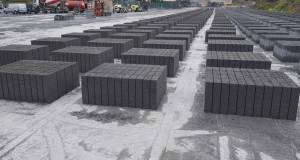 Low carbon concrete blocks now available in Ireland
Low carbon concrete blocks now available in Ireland -
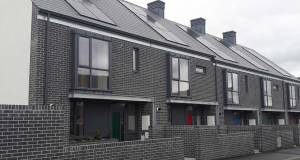 Cuckoos & magpies: state house-buying hits record
Cuckoos & magpies: state house-buying hits record

